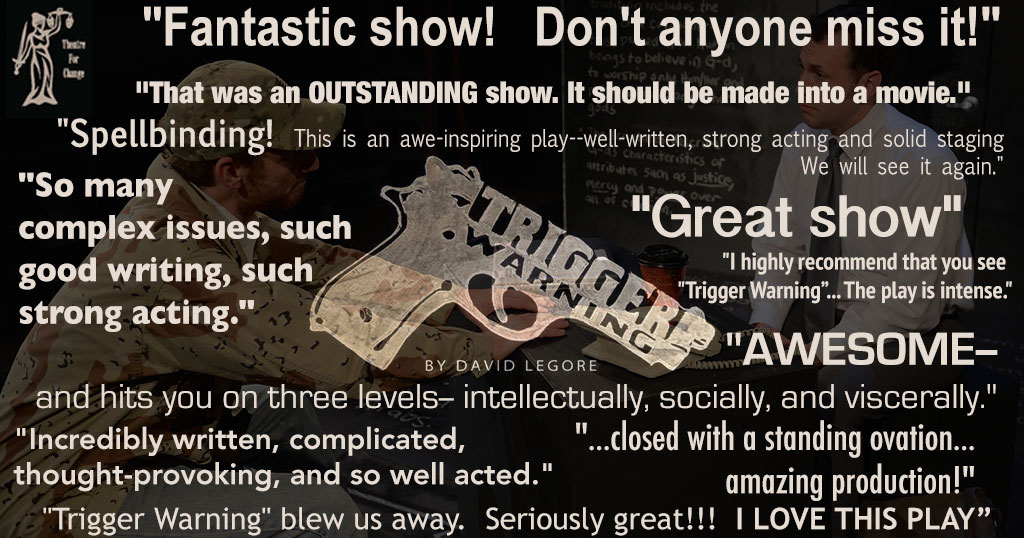TRIGGER WARNING
When Dr. Tom Martinson, professor of religion, learns of a devastating school shooting in a remote, war-torn village, he opens class with an impassioned and improvised plea for peace. This angers student Wayne Mooreland, who openly identifies as a veteran of Afghanistan. After a recording of the lecture goes viral, Martinson finds himself the target of hostile threats from strangers both home and abroad, forcing the involvement of university administration and campus police. Officer Rogelio Cortez, veteran of Iraq, is assigned to provide security for Martinson—an assignment complicated by his military kinship with Mooreland.
As Dr. Jackie Edwards, dean of humanities, navigates the crisis, she struggles with the rights of students versus those of faculty members—all while balancing the complex needs of the modern, corporate university. While scolding Martinson for his lack of discretion, she rues the lack of a trigger warning policy intended to warn students of traumatic subject matter. Martinson protests and the relationship between these friends becomes strained, along with long-standing principles of academic freedom and professorial authority in the classroom.
Mooreland reveals his desire to become a military chaplain, which leads to a battle with Martinson over theological differences and the future of his degree. As the clash intensifies, they find themselves in the center of a firestorm over matters of faith and freedom—highlighting the potentially volatile relationships among faculty students, administration and the public.
As Dr. Jackie Edwards, dean of humanities, navigates the crisis, she struggles with the rights of students versus those of faculty members—all while balancing the complex needs of the modern, corporate university. While scolding Martinson for his lack of discretion, she rues the lack of a trigger warning policy intended to warn students of traumatic subject matter. Martinson protests and the relationship between these friends becomes strained, along with long-standing principles of academic freedom and professorial authority in the classroom.
Mooreland reveals his desire to become a military chaplain, which leads to a battle with Martinson over theological differences and the future of his degree. As the clash intensifies, they find themselves in the center of a firestorm over matters of faith and freedom—highlighting the potentially volatile relationships among faculty students, administration and the public.

TRIGGER WARNING can be found at the New Play Exchange.
